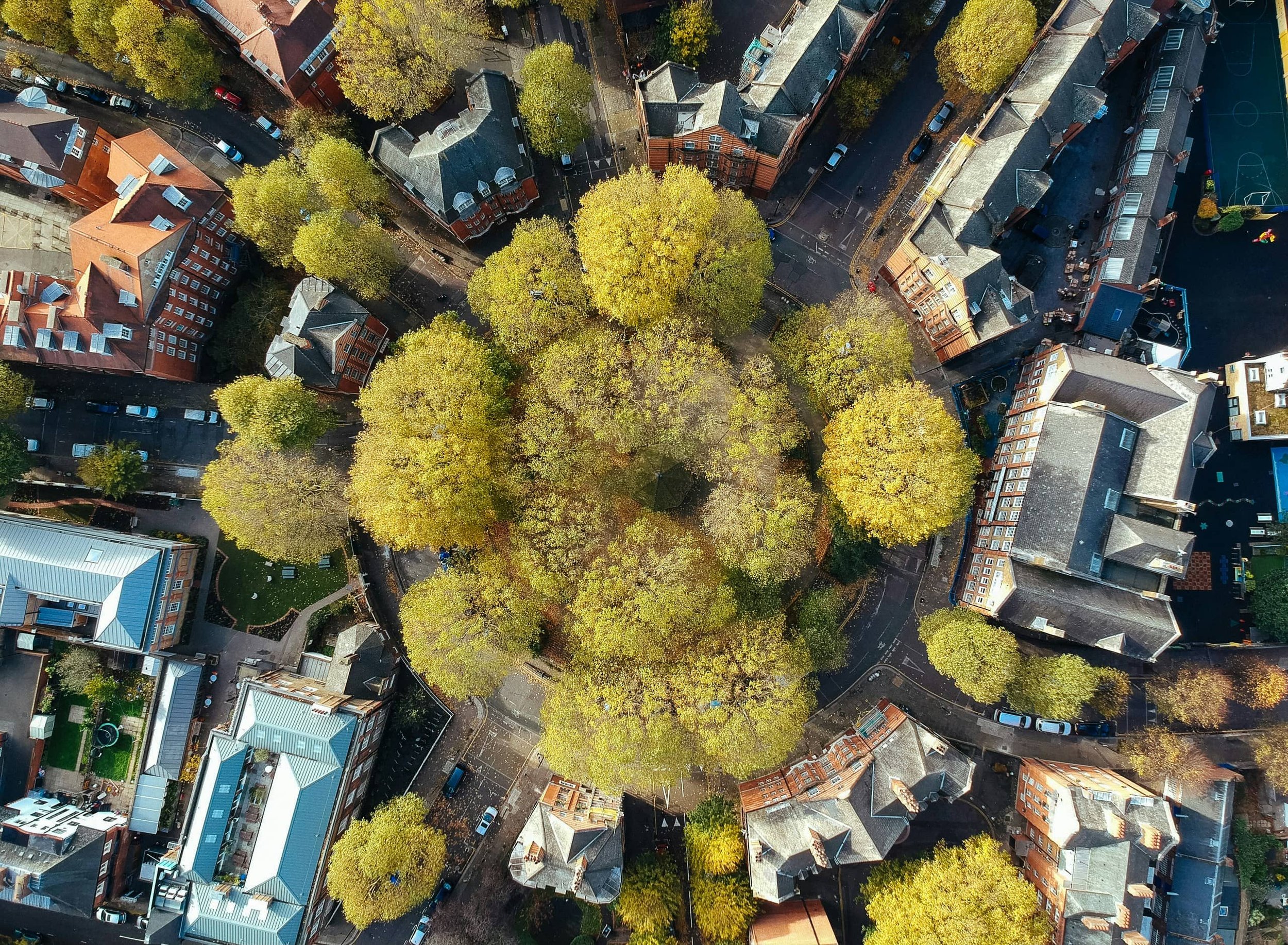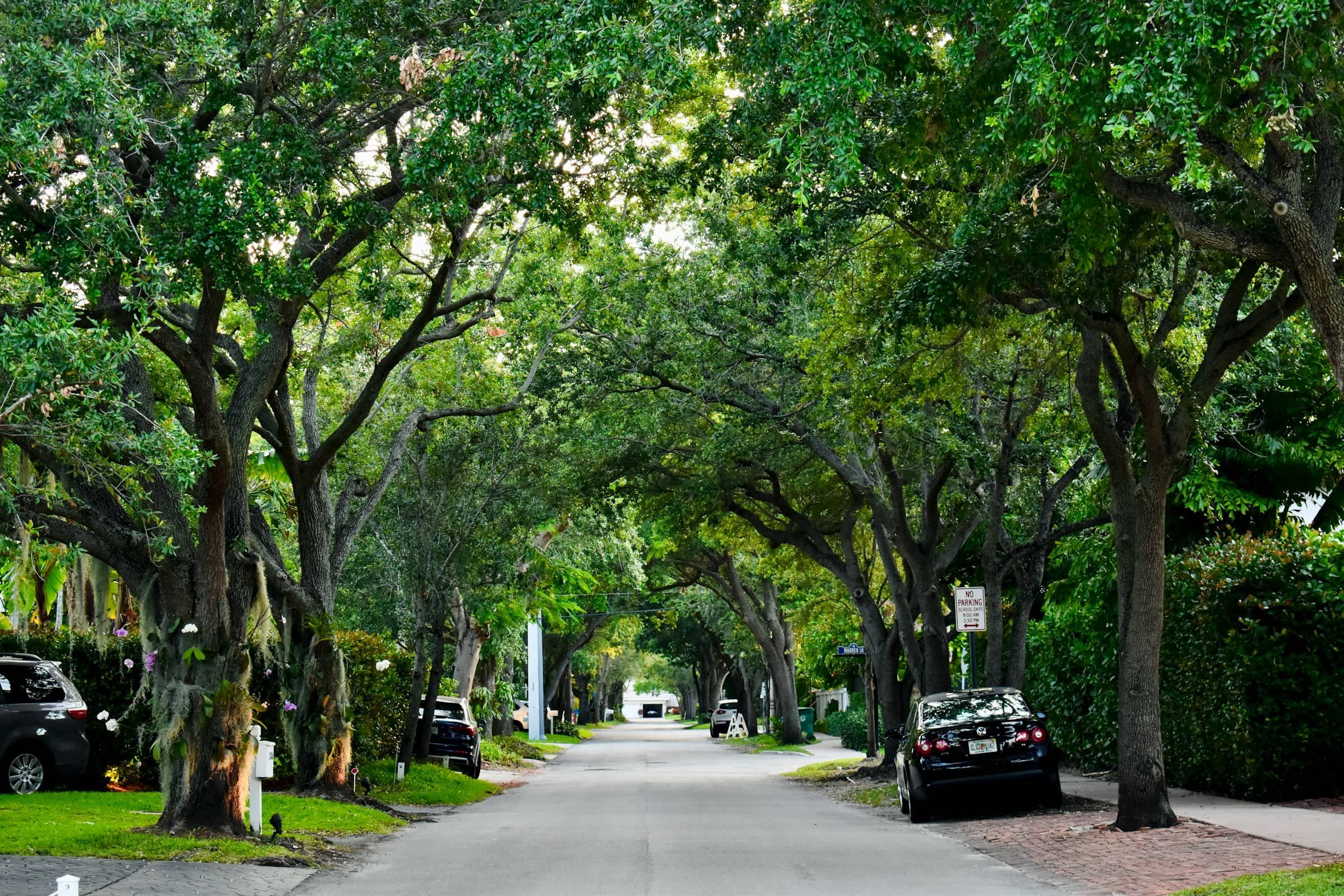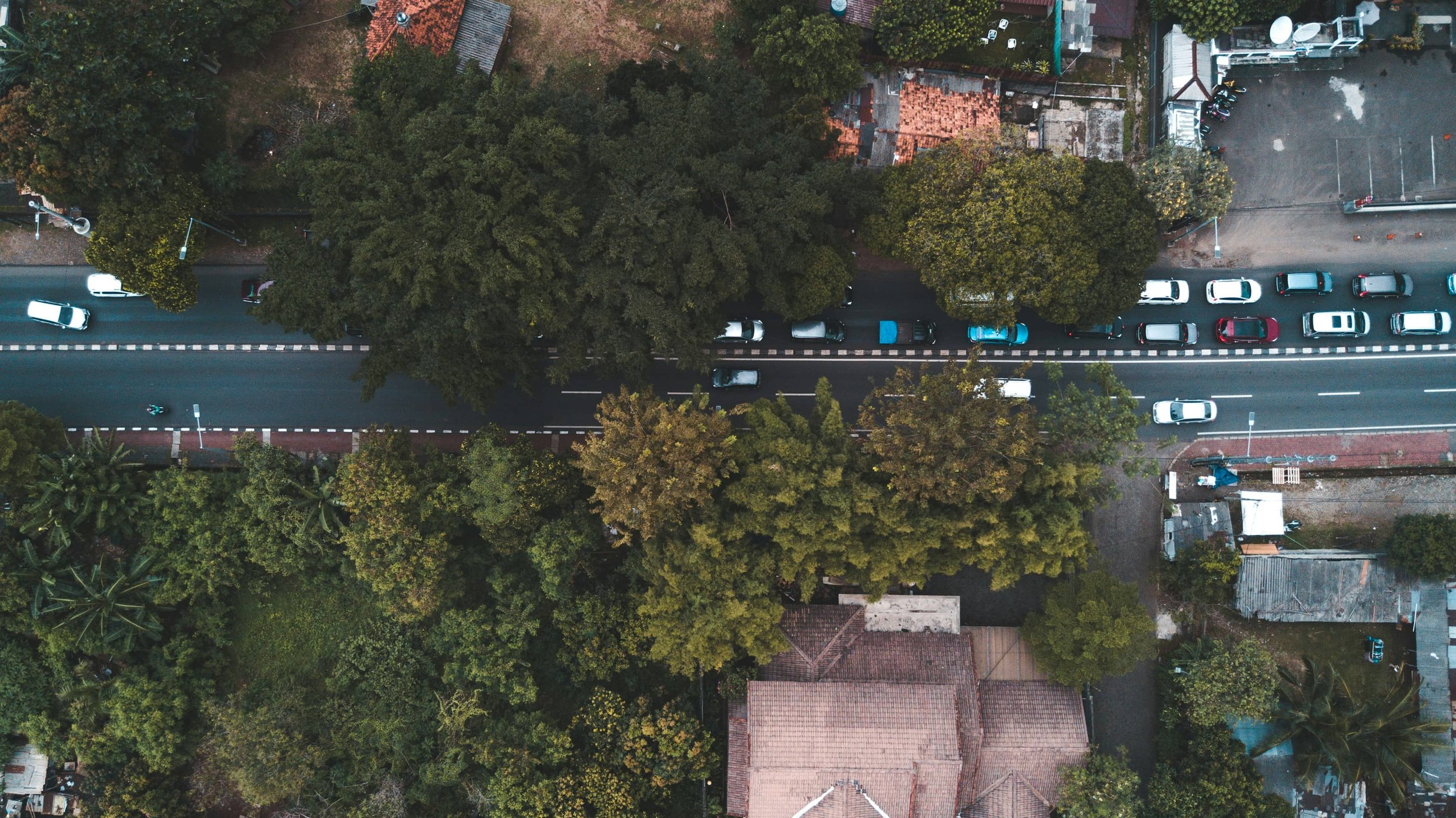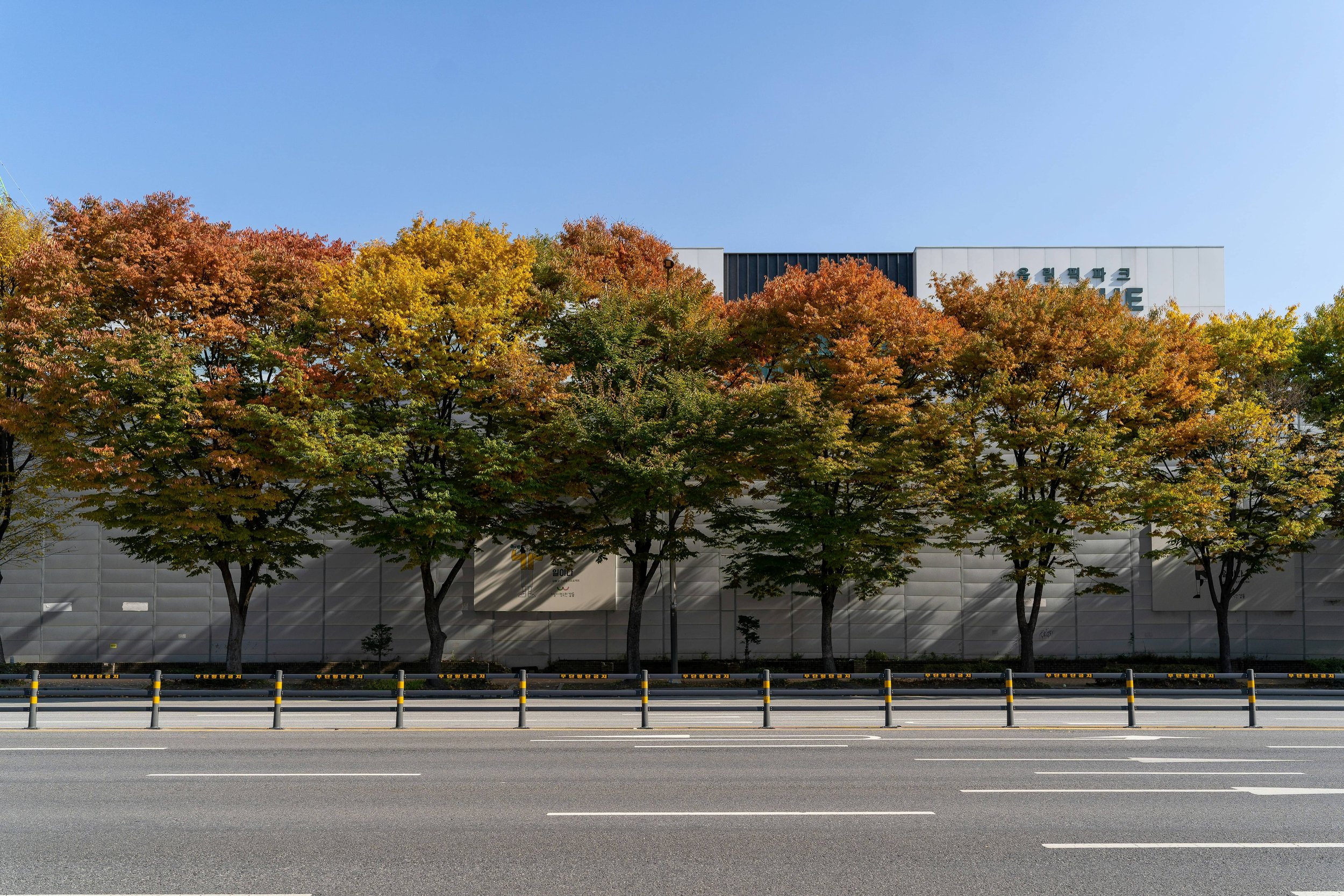
Community
Forest Corps
Urban Forestry as Equity-Centered Climate Action & Community Development
The Need for Tree Canopy in Climate-Vulnerable Communities
The greatest threat posed by climate change to human health and well-being is the rapidly escalating impacts of extreme heat. 2023 was the hottest year in recorded history and these dangerous conditions continue to intensify. Over 60% of all US urban areas are projected to have 30 days or more per year above 105°F by mid-century—a threshold beyond which cities become increasingly unlivable for the many who are without the means to escape these conditions.
Urban forests have been increasingly recognized as vital parts of “nature-based” climate solutions to these urban heat extremes. Urban forest canopy can reduce these temperature extremes by as much as 20°F while also providing a host of other critical life support services such as air quality improvement, stormwater infiltration, and improvements in physical and mental health, as well as reduced crime.
Community-Based Tree Care & Protection
In 2023, as a result of years of coordinated, multi-stakeholder advocacy, the Federal Government dramatically increased federal investments in urban forestry as part of the Inflation Reduction Act. Hundreds of communities across the country are now scaling up efforts to plant millions of trees nationwide, often without clear and sustainable strategies to water and maintain these plantings through the critical first years of establishment.
Yet years of care and maintenance are necessary for newly planted trees to survive before they will significantly contribute cooling and other environmental benefits associated with mature trees. Simply planting trees without a well-resourced, community-based care and protection system means less than 50% of the trees planted will survive.
A Community Forest Corps Focused on Youth Empowerment
Designed to address and advance solutions to the challenges of protecting newly-planted trees, CFC creates community-based, youth-powered systems of ongoing tree care and maintenance. The initial pilot cities include: Albuquerque, Boise, Boulder, Chicago, and Cleveland.
With a unique consortium of private sector players, community-based organizations, and city and county partnerships, Center for Regenerative Solutions and its partners are piloting an approach we believe is well positioned for rapid deployment, adaptive learnings, and eventually replication and scale-up across the nation.
Delivering Practical, Community Equity Value Now
Given the need for immediate and equitable urban forestry, CFC addresses both the equity limitations of past approaches and improves the environmental and social outcomes of planting trees. This neighborhood-based scaling of urban forestry deployment and maintenance provides more rapid establishment of community forest benefits.
Working through consortiums of local partners, each participating community/neighborhood is being supported in urban forest mapping, planning, implementation, and ongoing maintenance of its community forest expansion efforts. CFC is creating multiyear youth employment opportunities and growing a cohort of youth experiencing meaningful, community-serving work, enhancing both individual and community growth. Youth are also engaged in gathering vital urban heat data as part of their training and experience. This data will help inform where urban forestry efforts and other measures can most effectively prepare participating communities for the increasing incidence of urban heat extremes.

Scroll through this Storymap for a detailed case study
about the City of Boulder’s inaugural Summer 2024
Community Forest Corps youth leaders!
Core Components of CFC
Community Employment
To create immediate community benefits from tree-related work activities, crews/corps targeting youth ages 14-17 are trained to help establish and maintain community-prioritized urban forest actions, while educating participants to the wide range of professional development opportunities in living systems/natural resources management, including arboriculture, tree care, landscape architecture, field-based research, and natural infrastructure management.
Tree Care Technology Development
Working with university engineering student teams in a design challenge, CFC will help prototype youth-scaled systems for transporting the thousands of pounds of water, mulch and other materials that are integral ingredients to tree maintenance and enhancement.
Community Education and Engagement
A school and community-based education program using the experiences and information being gained in this project will lead to nationally replicable curricular elements that can be customized for use in multiple geographic, cultural and demographic settings, and youth will co-create visualizations and other forms of information sharing that are most effective in their location’s social context.
Urban Forestry Planning and Tree Planting
National leaders in the urban forestry data and analysis sector provide leading edge urban forestry data systems paired to locally-led planning processes to guide community-designed and prioritized planning, planting and youth program development.
Urban Heat Data Gathering and Assessment
In partnership with international urban heat researchers, a youth-based heat data gathering and interpretation aspect of CFCC will be one of the first times that researchers and communities can integrate heat data in the areas being targeted with tree planting actions in ways that can help project future benefits as well as establish baselines for ongoing effectiveness monitoring


